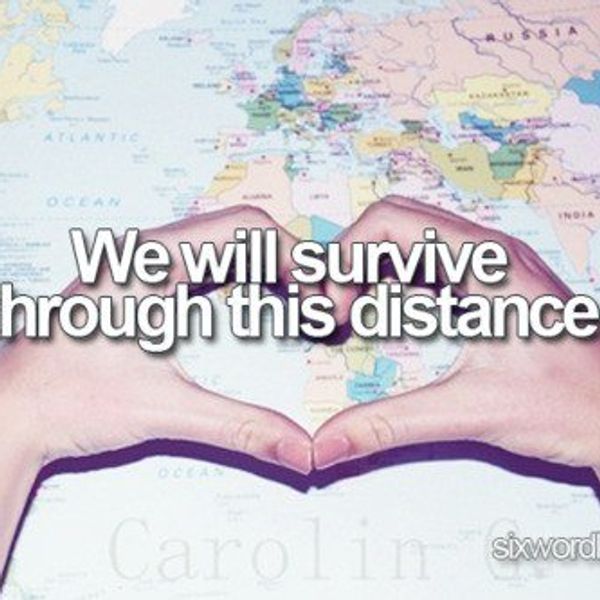Civic ignorance is a problem in our country.
A 2016 study conducted by GFK Custom Research North America revealed that over 80 million Americans do not know what the Electoral College is. That's almost a third of registered voters. I must admit, until recently, I was one of those people, ignorant to the workings of the Electoral College. Perhaps, I was absent on the days we learned about the Electoral College in high school or just didn't pay attention. In any case, it wasn't until I was asked my opinion on it that I realized how deficient my understanding of the Electoral College truly was. This realization is what prompted me to write this article and subsequently form my opinion on the subject. Hopefully, the information here can also help you understand this process better and form an informed opinion of your own.
Let's talk about what the Electoral College is and how it started.
When writing the Constitution, our founding fathers couldn't agree on a process to elect the President, half of them favored popular vote and the other half favored a vote by Congress. In a compromise, they formed the Electoral College, a process by which a slate of electors in each state vote for the President on behalf of the citizens of that state. Each state is allotted a number of electors that is equal to their number of representatives in Congress and the Senate, plus three from D.C. The electors each have one vote and meet in December, following the November general election, and vote for the President. This is the real election. In sum, there are 538 electoral votes, of which 270 must be won to clinch the Presidency. It is important to note that not all states allocate their electors the same way. Currently, all but two states, Maine and Nebraska, have a "winner take all" system in which the candidate with the plurality of votes receives the entire number of electoral votes allocated to that state. So, even if a candidate wins a majority 51% of the electoral vote, they will receive 100% of that state's electoral votes. It is also worth mentioning that the requirements to become an elector are minimal and "There is no Constitutional provision or Federal law that requires Electors to vote according to the results of the popular vote in their states." Essentially, the electors could all vote for whomever they wanted, completely disregarding their constituents.
Now let's examine some of the central arguments surrounding the Electoral College.
One argument from those in favor of keeping the Electoral College is the "We aren't a democracy, we are a republic." argument. In their view, our nation is a republic and therefore a democratic election is nonsense and not what the founding fathers intended. Here, it is important to remember that the Electoral College was a compromise, as was previously mentioned. Now, proponents of this position have a point, we are a republic. However, we are also a democracy. We vote for representatives to represent us and those representatives are elected through a direct vote. Therefore, we are an amalgamation of the two systems, a compromise, just like the founding father intended.
Another common argument is that a popular vote would incentivize candidates to campaign only in the big cities. It is thought that, due to their population densities, cities would be the focus of campaigns and the rural areas would be left out. A simple look at the population of the fifteen most populous cities begins to deflate this argument. Altogether, the cities have a population of just over 30.5 million, which is only 14.2% of the total voting age population. Consequently, even if a candidate could get every single vote in those cities, which is highly unlikely, they would still be short by a large margin. Therefore, it seems as though a popular vote would actually incentivize candidates to campaign beyond the big cities and expand into more areas of the United States.
Ironically, the very thing Electoral College supporters are afraid of, which is candidates only catering to a small portion of the population, is already happening. Under the Electoral College, candidates only have to pander to the 14 swing states (states that are 50/50 Republican/Democrat) and they can simply ignore the remaining 36 states. According to equalcitizens.us, "99% of campaign spending in 2016 was in those 14 swing states." The other 36 states are branded as republican or democrat and thought of as safe. Meaning that candidates of those respective parties do not have to spend time or money in those states, the vote is guaranteed. Swing states do change over time and are not always the same, but the number doesn't change. Therefore, candidates still only campaign in 14 states which is hardly an accurate representation of the country.
Finally, are there any alternatives?
Fortunately, YES! There are a number of groups out there trying to change the Electoral College. The first group and the one I most agree with are equalcitizens, who want to revise the way electoral votes are allocated. Instead of a "winner take all" system, electoral votes would be distributed proportionally with the results of the popular vote. So, if a candidate wins 41% of the popular vote they get 41% of the electorate vote. Currently, EqualCitizens are suing the government under the premise that a "winner take all" system violates The Equal Protection Clause of the 14thAmendment which "guarantees that all of us, and all of our votes, must be treated equally under the law." Another group goes by the name NPV or National Popular Vote. Due to the complexity of amending the Constitution, they are attempting to sidestep it by convincing states to pledge all of their electoral votes to the winner of the national popular vote. So far, they have the support of 15 states, who combined, control 189 electoral votes. 81 more votes and they will reach the magic number of 270, effectively eliminating the influence of the Electoral College. Lastly, there is something called Ranked Choice Voting where voters rank candidates by preference and the candidate with the most number one preference wins.
All three options seem viable and have growing movements behind them. I can't tell you which one is best, I don't think anyone can. Each one has advantages and disadvantages that must be carefully weighed. So, I implore you, investigate these options and put your support behind one of them. Make your voice heard and your vote count because under the current system it doesn't.



















